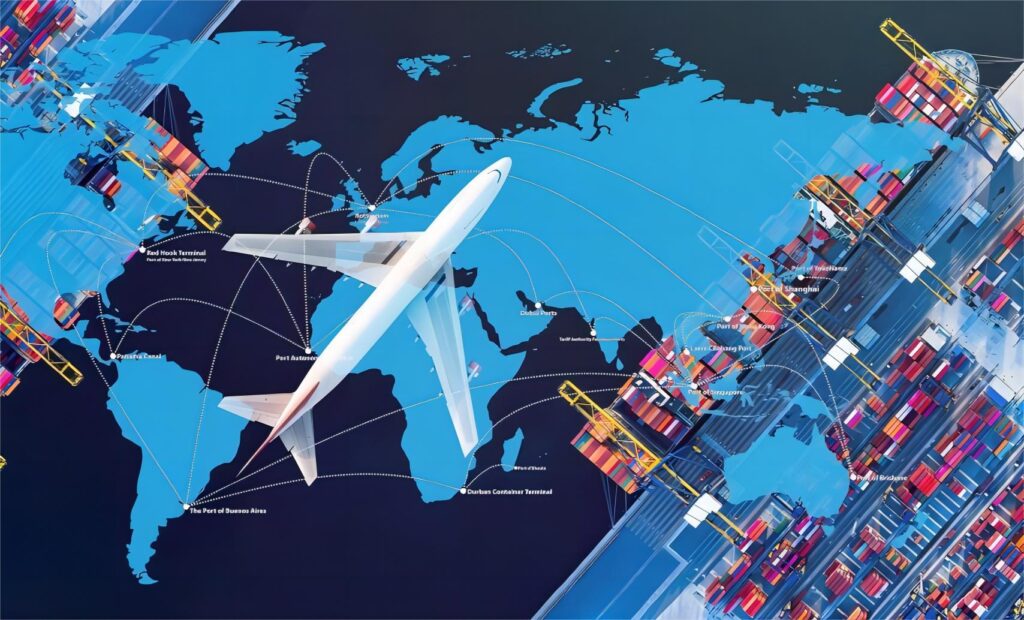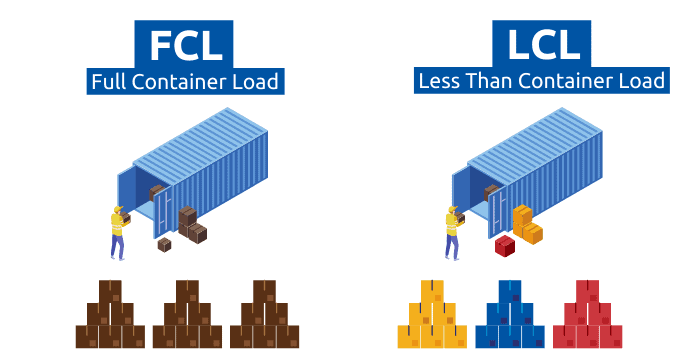With booming trade relations between China and South Africa, shipping goods across continents has never been more vital. Whether you’re importing electronics, textiles, or industrial equipment, understanding the logistics involved in shipping from China to South Africa is key to saving time and money.
This comprehensive guide breaks down every aspect—from shipping methods and costs to transit times and documentation—ensuring your cargo moves smoothly.
1. Why Ship from China to South Africa?
The import relationship between China and South Africa is supported by solid economic ties, but what makes it such a practical move for businesses?
- Low Production Costs: Products in China are cheaper due to economies of scale and low labor costs.
- Access to Manufacturers: China is home to the world’s largest and most diverse manufacturing base.
- Streamlined Logistics: Global freight forwarding infrastructure is highly developed.
- Custom Product Sourcing: Private label and OEM options are widely available.
- Supportive Agreements: The China-South Africa trade partnership facilitates customs processes and encourages smoother imports.
2. What Can You Ship from China to South Africa?
South African businesses import a wide variety of goods from China. These include:
- Electronics & Gadgets: Phones, batteries, speakers, cables
- Machinery & Tools: Mining equipment, pumps, power tools
- Beauty & Personal Care: Hair extensions, skincare products, salon equipment
- Toys & Children’s Products
- Clothing, Shoes, and Textiles
- Furniture & Home Decor
- Auto Parts & Accessories

3. Main Shipping Methods from China to South Africa
Selecting the right shipping method depends on your cargo size, urgency, and budget. Here’s a comparison of the three main modes:
| Shipping Method | Best For | Transit Time | Cost Range (USD) | Key Features |
|---|---|---|---|---|
| Sea Freight (FCL) | Full container loads (15–33+ CBM) | 25–35 days | $2,500–$6,000 (20ft–40ft) | Most economical for large volumes, secure, port-to-port service |
| Sea Freight (LCL) | Small-to-medium shipments (<15 CBM) | 30–40 days | $80–$150/CBM | Ideal for low-volume shipping, shared container, flexible but slower |
| Air Freight | Urgent or high-value goods | 3–7 days | $5–$9/kg | Faster than sea freight, secure, suited for perishable or time-sensitive cargo |
| Express Courier | Samples, documents, small parcels | 2–5 days | $10–$25/kg | Door-to-door service, fastest option, easy tracking, limited on heavy items |
4. Customs Clearance Process in South Africa
When your shipment arrives, it must go through customs. Here’s what you’ll need:
Required Documents:
- Commercial Invoice
- Packing List
- Bill of Lading / Air Waybill
- Import License (if required)
- Certificate of Origin (for some products)
- Product-specific permits (e.g., food, electronics)
Import Duties & Taxes:
- Customs Duty: Depends on HS code, varies by product
- VAT: 15% of total import value (CIF + duty)
- Excise Duty: For specific goods like alcohol, tobacco
5. Major Ports & Airports
Main Chinese Ports:
- Shanghai
- Shenzhen
- Ningbo
- Guangzhou
- Qingdao
Main South African Ports:
- Durban Port – Largest and busiest
- Cape Town Port – Ideal for Western Cape
- Port Elizabeth – Growing trade capacity
Main Airports:
- OR Tambo International (JNB)
- Cape Town International (CPT)

6. Shipping Time Estimates
| Mode | Transit Time | Best For |
|---|---|---|
| FCL | 25–35 days | Full container loads |
| LCL | 30–40 days | Small volume shipments |
| Air Freight | 3–7 days | Urgent, valuable goods |
| Express | 2–5 days | Samples, light parcels |
Note: Weather, port congestion, and customs can affect delivery times.
7. Shipping Cost Overview
Sample Freight Rates (Estimates)
| Method | Cost (USD) | Notes |
|---|---|---|
| FCL (20ft) | $2,500–$3,500 | ~33 CBM |
| FCL (40ft) | $4,500–$6,000 | ~67 CBM |
| LCL | $80–$150/CBM | Consolidation fees may apply |
| Air Freight | $5–$9/kg | Based on chargeable weight |
| Express | $10–$25/kg | Based on courier & speed |
Request a live quote for accurate pricing.

8. How to Choose the Right Shipping Method
| Question | If Yes → Suggested Mode |
|---|---|
| Is your shipment urgent? | Air Freight or Express |
| Is your cargo over 15 CBM? | FCL Sea Freight |
| Are you shipping samples or parcels? | Express Courier |
| Is your budget tight? | LCL or FCL |
| Are goods perishable? | Air Freight |
9. What Affects Shipping Time?
Several factors influence delivery time:
- Port Congestion – Busy ports may cause delays
- Customs Delays – Missing documents or misclassification
- Weather Conditions – Typhoons, storms can affect both sea and air
- Transshipment Stops – Indirect routes may take longer
- Inland Transport Time – From port to final destination
10. Common Challenges & How to Avoid Them
| Challenge | Solution |
|---|---|
| Misclassified goods | Work with a licensed customs agent |
| Damage in transit | Purchase cargo insurance |
| Shipping delays | Plan buffer time, avoid peak seasons |
| Incorrect paperwork | Double-check invoices & permits |
| High duties unexpectedly | Check HS code & calculate CIF correctly |
11. Partnering with a Freight Forwarder
Using a freight forwarder simplifies the entire process. Services include:
- Route optimization
- Cargo booking
- Customs clearance
- Warehousing
- Door-to-door delivery
Choose a forwarder experienced in China–Africa trade routes with transparent pricing and reliable tracking.
12.Conclusion
Shipping from China to South Africa doesn’t have to be complicated. Whether you’re importing a full container of goods or sending a few boxes, the key lies in choosing the right method, understanding customs regulations, and working with experienced logistics partners.
With proper planning, you can avoid delays, reduce costs, and grow your business confidently.
Request a Quote
Need a tailored solution for your shipping from China?
Let TJ China Freight Forwarder assist you with reliable, cost-effective service.
FAQ:
Q1.How much is shipping from China to South Africa?
It depends on size, weight, shipping mode, and route. Sea freight starts from ~$80/CBM; air from ~$5/kg.
Q2.Can I ship door-to-door from China to South Africa?
Yes! Most freight forwarders offer DDP (Delivered Duty Paid) services for this route.
Q3.Are there restricted or banned items?
Yes. Examples include counterfeit goods, certain chemicals, and unlicensed medical equipment.
Q4.What is the best Incoterm to use?
FOB is commonly used. If you want everything handled, choose DDP.
Q5.Should I get cargo insurance?
Highly recommended for valuable or fragile items.
